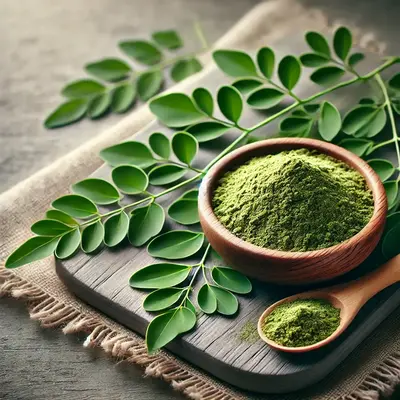Moringa, often hailed as the "Miracle Tree," is a nutritional powerhouse with a wide range of benefits. This comprehensive guide delves into everything you need to know about this remarkable plant, from its nutritional value and medicinal properties to its diverse uses and sustainable impact.
What is Moringa?
Moringa oleifera, belonging to the Moringaceae family, is a fast-growing, drought-resistant tree native to South Asia and Africa. It's cultivated for its edible leaves, pods, seeds, and flowers, and has been used for centuries in food, medicine, and water purification. Its resilience and nutritional richness make it a vital resource in developing regions.
Where Does Moringa Grow?
Moringa thrives in tropical and subtropical climates, originating in the Himalayan foothills of India. Today, it flourishes in:
- Africa
- Southeast Asia
- Central and South America
- The Caribbean
Its distinctive slender trunk, feathery leaves, and long, drumstick-shaped pods make it easily recognizable in warm climates.
What Makes Moringa So Special?
Moringa's "superfood" status is well-deserved. Nearly every part of the tree offers valuable benefits:
Nutritional Powerhouse
Moringa leaves are packed with essential vitamins and minerals:
- Vitamin A: Supports eye health
- Vitamin C: Boosts immunity
- Calcium & Iron: Essential for strong bones and healthy blood
- Protein: A complete plant-based protein, containing all nine essential amino acids
Moringa is a crucial resource in areas where malnutrition is prevalent, providing a substantial portion of daily nutrient needs in a single serving.
Medicinal Properties
Traditional medicine has long utilized moringa for various ailments, and modern science is validating these uses:
- Anti-inflammatory: Reduces inflammation and pain
- Antioxidant-rich: Protects against cell damage and chronic diseases
- Antimicrobial: Helps combat infections
- Blood Sugar Regulation: May assist in managing diabetes
Environmental Benefits
Moringa's benefits extend beyond human health:
- Thrives in arid, nutrient-poor soil
- Improves soil health with its extensive root system
- Acts as a natural water purifier
How is Moringa Used?
Moringa's versatility shines through its diverse applications:
Food Uses
- Leaves: Cooked like spinach or dried and powdered
- Pods (Drumsticks): Used in curries and stews
- Seeds: Roasted as snacks or pressed for oil
- Flowers: Added to salads or fried
Medicinal Uses
Moringa is used in teas, tinctures, and poultices for various health concerns.
Water Purification
Crushed moringa seeds can effectively purify water by binding to impurities.
Why Moringa Matters
Moringa offers hope in the face of malnutrition, environmental challenges, and rising food costs. Its ability to nourish, heal, and contribute to sustainability makes it an exceptionally valuable plant.
Whether you're cultivating moringa, incorporating it into your diet, or simply learning about its potential, you're part of a movement harnessing nature's power for a healthier and more sustainable future.
Explore further! Discover our guides on growing moringa, delicious recipes, and incorporating moringa into your life.
